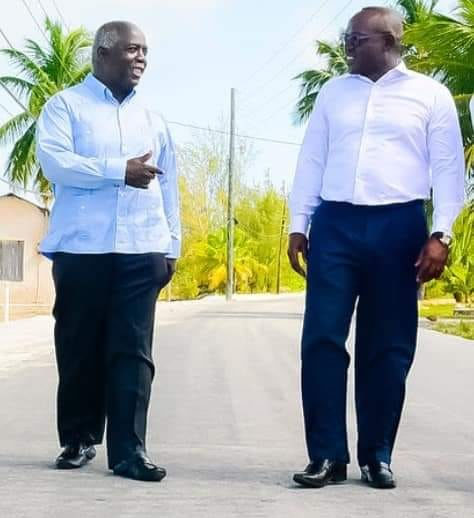
By Fred Sturrup | GB News Editor | sturrup1504@gmail.com
For the first time in history there is a deputy leader who is not considered by many to be a true Progressive Liberal Party (PLP) product. I. Chester Cooper, the Deputy Leader of the PLP and the Deputy Prime Minister, as well as Minister of Tourism, Aviation and Investments in Prime Minister Philip “Brave” Davis’ cabinet, was not even in the PLP mix during most of the last Perry Christie PLP Government (2012-2017). Somehow, he surfaced as a PLP Candidate for the 2017 general elections after being thought to have initially decided to opt for the Free National Movement (FNM).
In fact, during a House of Assembly session following his success in Exuma as an Official Opposition representative Cooper was accused on the floor of having changed his mind for the PLP rather than the FNM. Whatever the case, his personal PLP link is relatively new. This is where he differs greatly from all others who were deputy leaders of the oldest (established in 1953) formal political party in the country.
When Lynden Oscar Pindling who would later be knighted and enshrined as the Father of the Nation came home from successful law studies and joined the PLP in 1953, he met Henry Milton Taylor (later to rise to the status of governor general) as the de facto leader of the PLP. Taylor was not successful in the 1956 elections and Pindling evolved into the unquestioned leader of the PLP. There are different stories of Pindling’s ascension to the PLP leadership, but what was never in doubt was the absolute loyalty of his deputy Arthur Hanna (who would also later become governor general).
Hanna was quite comfortable in his role as deputy leader of the party and deputy prime minister through 25 consecutive years of governance. It has been said far and wide that he never aspired to be party leader or prime minister. No one, not even Pindling or the late great Clarence Bain were thought of as being more PLP than Hanna. Hanna lost in his election race in 1992 and easily slipped into the background of national politics.
Perry Christie and Dr. Bernard Nottage emerged as the top choices to be Hanna’s successor as deputy leader of the PLP. In a one-day convention, Christie overcame Nottage and was officially established in the role Hanna performed so brilliantly for many years. Whatever can be said about Christie and his rise to the prime minister position for two non-consecutive terms, it was never doubted that his political career was rooted in the PLP and remained so. The political transition over time saw Cynthia Moxey-Pratt and Davis emerge as deputy leaders of the PLP, and once again, there was no questioning the distinct PLP background of the two.
Now, there is Chester Cooper. Because his FNM friends Algernon Cargill and Marlon Johnson and, I understand, quite a few others have remained entrenched in high, meaningful positions in this PLP Government; Cooper has drawn many sideways looks from PLPs, especially those who fought hard in the trenches and have received no flowers at all as yet.
This man Cooper does not have the bearing of a PLP. He seems abstract to PLPism. Oh, he exists as a PLP hierarchy member, but the bet here is that only a small percentage of those who pay close attention to the political arena see him as a true PLP. Such is the strange situation of historical dynamics he presents. That he has ambitions to be prime minister is not in doubt however.
This is where Davis ought to be careful and watchful; Cooper is 51, and Davis is 70. It seems an easy scenario, the younger man waiting comfortably in the wings for the older to serve two terms as prime minister. I don’t think this to be the case though. I see Cooper fighting very hard to keep as many of his FNM buddies around, then eventually seeking to get them in the PLP ranks as part of his support base for the future. He is just a different kind of political creature; one never seen before around the PLP leadership table.
Should Davis be uneasy?
Well, certainly he would be best minded not to go to sleep on Cooper.








